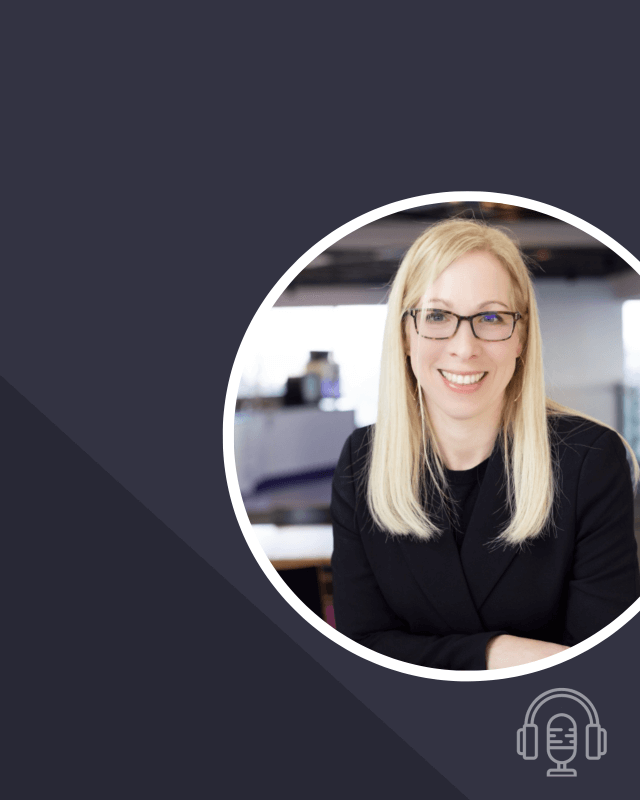
Advisor Insights
Lindsay Zwart
Enabling organisations to discover new ways of thinking to thrive in the future
Advisor Insights
Published 17 June 2024
Andy MacDonell is a Chartered Accountant and Certified Chair™ with 17 years of experience in public practice. Working closely with business owners, he recognises the value in builded trusted, authentic relationships that allow ambitious owners to be open and vulnerable about the knowledge gaps they may have and the support they need to close them. For Andy, advisory boards are an effective way to help privately owned businesses navigate challenges and uncertainty.
In this Advisor Insights interview with Advisory Board Centre Founder Louise Broekman, Andy shares why ethical engagement is a cornerstone of his advisory engagements. With deep expertise in strategy design for businesses, Andy uses his financial acumen and deep curiosity to effectively implement best practice advisory boards for clients within his professional services practice.
With advisory boards, you’ve got to initially earn your right to be there and continue to earn your right to be there as well. Implementing best practice allows you to demonstrably prove the underlying value of the business is actually lifting.
Louise Broekman:
Welcome to the Advisor Insights interviews. My name is Louise Broekman and I’m here with Andy McDonnell to talk all things advisory boards and the professional services sector. Welcome, Andy.
Andrew MacDonell:
Thanks, Louise. Great to be here.
Louise Broekman:
Yeah, good to have you. And so Andy, to start with, if you may share with all of us a bit about your background to start with, that’d be terrific.
Andrew MacDonell:
I’m a Chartered Accountant by trade. I’ve been in public practice my entire career, so that’s now 17 years. A hundred percent of that time has always been focused on private, privately owned business. That’s my space, that’s the space I know and I live and breathe. And I guess I’ve sort of been fortunate, particularly early on in my career, while there was a lot of tax and compliance and compilation work as well, I got to work with a partner who was the head of advisory that was BDO in New Zealand. And from very early on in my career, introduced to what we then really called advisory boards and meeting clients face to face and preparing information for them and helping them navigate challenges. And at the same time, this was about the time that things like the GFC were happening. And so that taught me pretty quickly, I guess not only the impact that advisors and experts can have on businesses, but what business owners truly valued.
There’s a lot they expect. There’s a lot that you need to be able to do and deliver as a CA, but that real value or the sharpening, particularly in terms of privately owned business, I sort of found was helping them navigate through uncertainty and challenges and those early experiences and other experts that I’ve met throughout my career and experiences I’ve had, that’s really shaped me to deliver what my current offering is. Thankfully, I don’t have to deal with any sort of tax or compliance work anymore. So I get to focus solely on strategy design for businesses. So that’s working with clients, reviewing their business through a whole bunch of measures, financial, non-financial customers, markets, operations, talent bench and so on. And then pulling together a coherent strategy through a two day workshop off the back end of that. That will usually progress into basically a cadence or a rhythm of advisory board meetings, often quarterly, to really execute that strategy. And then as my skillset, there’s a lot around strategic financial management. So that’s around how do we lift really the underlying value of a business over time? How do we enhance things like free cashflow, profitability on capital, employed, all of those measures to really give business owners a chance to really invest and lift the game in terms of what they’re doing. So yeah, it’s a lot of fun, a lot of fun to play,
Louise Broekman:
And it’s the business market that skills and experience and really that commercial acumen about the challenges that they have with their business model. It’s interesting, Andy, you have a combination of both advisory boards with external advisors as well as advisory board of one, as part of that service offering. Can I just talk about in the professional services sector, that combination between finance and the advisory board piece, it’s a very strong combination in advisory board setting, but it can also be problematic if the ethical boundaries need to be managed well, don’t they? So what is the area of your advisory board work versus what’s your area of a professional services provider? How do you navigate those boundaries for yourself?
Andrew MacDonell:
Yeah, I think first and foremost, Louise, it really comes back to a really clearly defined scope. So why is the client working with me? They’re often going through a two something. It might be, I want to prepare my business for exit. I’m dealing with succession. I want to get into acquisition mode. I want to do this, I want to do that. And through that, we will do some initial work, again, strategy, maybe a financial review, and then off the back of that, really being able to understand, okay, what are the challenges that this business is facing? Can we solve those challenges? What’s the impact if we do? And then ultimately, what do we need to really bring around the table to make this happen for the client? Am I the best person to be able to do that? That’s a really critical question as well.
And then being able to curate that solution through an advisory board, it’s a really good piece of work to be able to do. I think the other ethical considerations for me as well, it always comes down to independence. There have been opportunities and you do hear of other advisors being offered things such as equity in terms of remuneration. That’s not something I’d ever really entertain. I think once you take equity, you’re an owner, you’re not an advisor, you lose that level of independence and all of a sudden you’re immediately conflicted, right? Because as what I’m advising actually going to impact my net worth, and is that right or wrong compared to what the actual owner needs, what the business needs, and those other stakeholders as well. So those are sort of the real critical ones to me. And then ultimately tying it back so that you’ve confident that you can provide outcomes, solutions and deliverables that the client can actually action and use. Because at the end of the day, you can give the best advice possible. They’ve got to be able to go away and do something with that. That’s how you get traction. That’s how you get progress with a business owner. So making sure that you can really tick those things off is critical.
Louise Broekman:
Thank you. And Andy being a certified chair, but also being a member of our faculty in training on best practice, how has the implementation of best practice, so you’ve talked about two of the principles already around clarity of scope and independence. How has the best practice methodology actually helped you to become a better and more informed advisor?
Andrew MacDonell:
Yeah, I, I mean, I really like the code of ethics at the advisory board center because it’s principles based. As a chartered accountant, we have another code of ethics to deal with as well. And it can actually, when you get into the nitty gritty of that, can actually get quite prescriptive around what you can and can’t do. And there’s obviously some very good reasons for that. But I think I always sort of come back to, as I said, the clarity of scope. The independence is an important thing. I also really think at advisory boards, you’ve got to initially earn your right to be there and continue to earn your right to be there as well. And so that’s where measurement impact. Measurement I think becomes really, really important. As an advisor, they’re making an investment. The owner is making an investment to go through this journey with you.
So how do you demonstrably prove that as we go through and we execute this strategy, we’re actually shifting the need or here. And so that’s where my framework, we will use measures such as EVA economic value added in a business, for example. Okay, are we actually able to see as we go off and tackle these challenges and improve earnings, sharpen up capital and achieve these other things, the underlying value of the business is actually lifting with us as well. And that is always a really, really important measure for me to be able to hang a hat on, sort of say, well, we’ve got a lot of ways we can potentially take this business. Are we ultimately going to be able to reward the owner and the underlying and improve really the underlying value of one of the most important assets? If you can do that in a reliable, repeatable process, it pretty much ensures that you’re staying on the right path.
Louise Broekman:
And it’s interesting, it shifts your relationship with the owner too. In a peer to peer relationship. You’re not necessarily just acting as a supplier to
Andrew MacDonell:
No, absolutely. And I mean that relationship is critical, right? If you think about it, you are working with a business owner. You are starting to get involved in an engagement where all of a sudden you’re asking for access to financial statements. What markets are you playing in? What’s the quality of your customer base? How good your talent bench? When did this whole business start off? What’s been the journey to hear all this sort of stuff? And you’re asking ’em to unpack it all really, really, really, really quickly and upfront. That takes a lot of trust and it can make a business owner almost feel a little bit vulnerable. Are we really ready to go there yet as well? But if you can guide them through that part, particularly with a proven process that really sort of says, well, okay, this is where we need to take it to next to really maximize value and impact.
If you can do that, the trust gets accelerated really, really quickly. And along those relationships that you have with clients. I mean, this has allowed me to continue working with clients, even back from NZ, and I haven’t seen them face to face in years, but we’ve still got a really good relationship off the back of that. It’s resulted in clients being able to feel free and confident to call you to discuss what’s on their mind. I’ve even had instances where would you mind talking to my son, my daughter, they’re at university, they’re not sure what they want to do. They’ll want to enter the workforce. It’s a big compliment, right? And I think it’s testament to that relationship.
Louise Broekman:
Andy, thank you for taking the time. It’s just really so interesting seeing this advisory board model, working in the professional services sector in an ethical way and being managed really with a lot of care. Thank you for the good work that you’re doing and your contribution to the advisory board sector as well, and for taking the time today.
Andrew MacDonell:
No pleasure. Pleasure Louise. Always good to catch up.
Looking to build your advisory support network?
